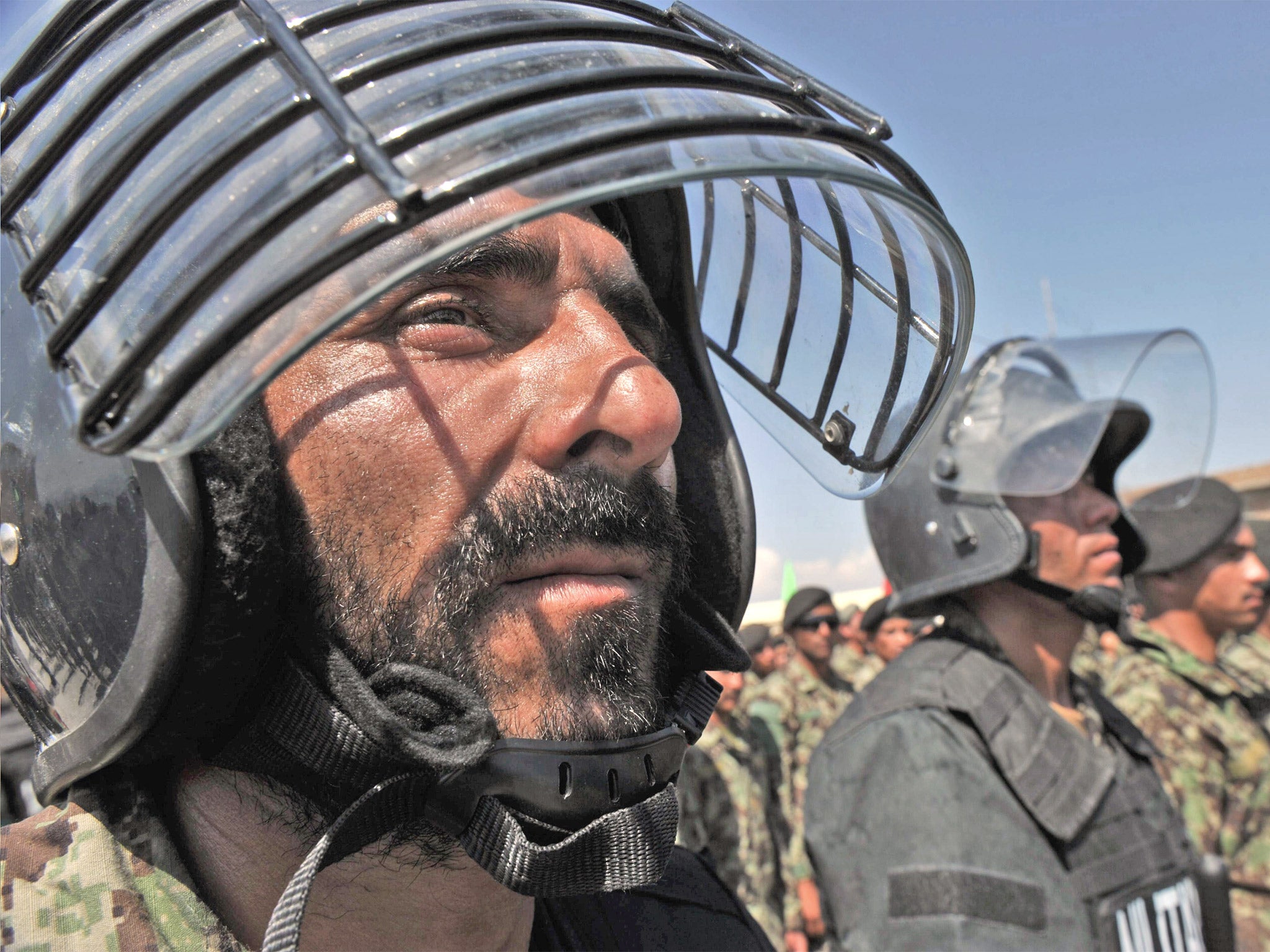Karzai orders takeover of air base after 'serious breach' of US pact
President accuses Washington of violating agreement to hand back Afghan inmates

Your support helps us to tell the story
From reproductive rights to climate change to Big Tech, The Independent is on the ground when the story is developing. Whether it's investigating the financials of Elon Musk's pro-Trump PAC or producing our latest documentary, 'The A Word', which shines a light on the American women fighting for reproductive rights, we know how important it is to parse out the facts from the messaging.
At such a critical moment in US history, we need reporters on the ground. Your donation allows us to keep sending journalists to speak to both sides of the story.
The Independent is trusted by Americans across the entire political spectrum. And unlike many other quality news outlets, we choose not to lock Americans out of our reporting and analysis with paywalls. We believe quality journalism should be available to everyone, paid for by those who can afford it.
Your support makes all the difference.President Hamid Karzai has ordered Afghan officials to take control of the prison at Bagram Air Base after accusing the United States of continuing to detain prisoners in a "serious breach" of a bilateral agreement signed in March.
At a meeting with the Afghan Minister of Defence, the Attorney General, and the commander of Bagram prison, Mr Karzai called for the "full Afghanisation" of the facility, according to a statement from the Presidential Palace.
The move follows the end of a two-month grace period for the handover of the prison from US to Afghan control, as agreed in a memorandum of understanding (MoU) signed by President Karzai and President Barack Obama. At present, prisoners captured after the agreement was signed are being held in administrative detention by American forces – a situation President Karzai described as a "serious breach" of the agreement.
The Palace, which has demanded a "complete transfer of [the prison's] authority", claims that even prisoners found innocent by the Afghan courts continue to be held.
The detention centre remains a controversial topic and one President Karzai has used to garner domestic support and show he is not solely beholden to foreign powers. In response, the US embassy said the MoU "contains reciprocal commitments to provide for the security of Afghan citizens, the ANSF [Afghan National Security Forces] and coalition forces by keeping captured enemy combatants from returning to the battlefield".
And, though the statement concludes that the US remains "confident" that a solution will be found, the reference to detaining fighters illustrates America's fear that, with the Afghans in charge, hardened militants will be allowed to run loose by a justice system that has a long way to go to be effective.
"The MoU was supposed to transfer the detainees that were already held by the Americans into the Afghan system," a rule of law consultant working in Afghanistan said.
"The problem was that that agreement covered the people that were captured before that agreement was signed. So everyone after that agreement was in limbo. And the Americans were just taking them in because they hadn't come up with any sort of mechanism on how to deal with that. Now the Afghans and the Americans are disagreeing on whether they have come up with [a solution] or not," the consultant added.
"But the Americans are happy with the fact that a lot of people don't understand what's going on because the Afghans aren't quite ready to take over this responsibility and, besides that, for the Afghans, for civil society, the administrative detention part of this is against the law of Afghanistan."
Dr Wadir Safi, a professor in the law faculty of Kabul University and the head of the international relations faculty, agrees that detainees found not guilty by the Afghan legal system should be freed; that the prison should be handed over now that the two-month transition period has expired; and that the courts should be in agreement with the Afghan constitution.
But Dr Safi agrees with the foreign consultant's concerns about the Afghan justice system.
Timeline: Bagram
December 2001 Nato takes over the former Soviet air base following the overthrow of the Taliban, using it as a detention centre.
December 2002 Two prisoners die in the prison after being tortured. Several US soldiers are later found guilty of abuse but are punished by no more than a few months in prison.
June 2004 British resident Binyam Mohamed is interrogated in Bagram several times – with allegations that he was kept in constant darkness and bombarded with loud music – before being taken to Guantanamo.
July 2005 Four terrorism suspects escape after picking the locks on their cells and walking out at night.
April 2010 A BBC investigation claims Afghan prisoners have been abused in a "secret jail" at Bagram.
September 2012 The US hands Bagram and its 3,000 detainees back to local forces, but the memorandum of understanding is not legally binding and tensions between Kabul and Washington remain.
Join our commenting forum
Join thought-provoking conversations, follow other Independent readers and see their replies
Comments